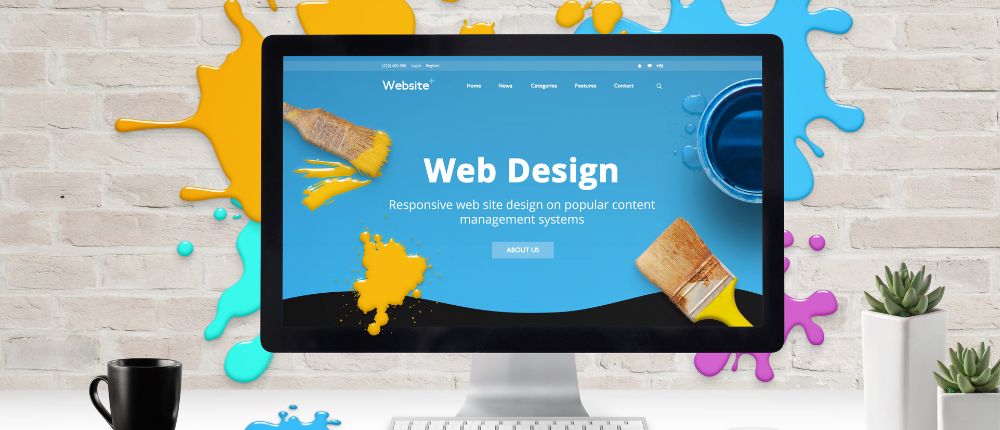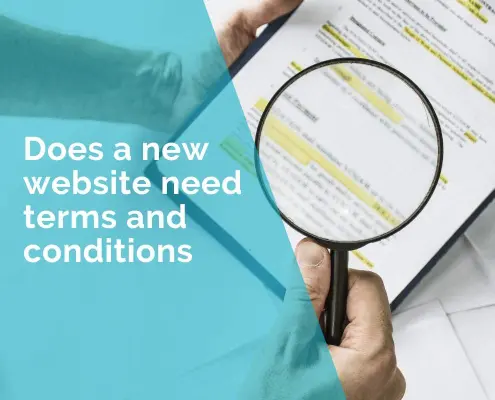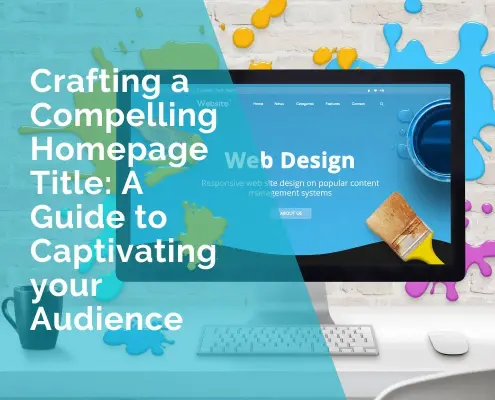Compelling Homepage Title: A Guide to Captivating Your Audience
Importance of A Homepage Title
Your homepage title is the virtual front door to your website. It’s the first thing visitors see on search engine results pages (SERPs) and serves as their initial impression of your site.
Think of it as the headline of a newspaper article – it needs to grab attention and entice readers to delve deeper.
Impact on User Engagement and SEO
Beyond just making a good first impression, your homepage title plays a crucial role in user engagement and SEO.
A well-crafted title not only encourages users to click through to your site but also signals to search engines what your website is about, helping improve your ranking in search results.
Understanding the Purpose
Defining the Homepage Title
Let’s start by clarifying what exactly a homepage title is. Simply put, it’s the text that appears as the clickable link on search engine results pages (SERPs) and as the title at the top of a browser tab when someone visits your site.
For example, if you’re running a pet store called “Paws & Claws,” your homepage title might be “Paws & Claws – Your One-Stop Shop for Pet Supplies.”
Role in Setting the Tone and Expectations
Your homepage title sets the tone for the entire browsing experience. It should accurately reflect the content and purpose of your website while also piquing the curiosity of potential visitors.
For instance, if you’re managing a travel blog, a title like “Wanderlust Adventures: Travel Tales & Tips” sets the expectation that readers will find captivating travel stories and useful advice on your site.
Balancing Creativity with Clarity
While it’s essential to be creative and catchy with your homepage title, clarity should never be sacrificed. Avoid cryptic or obscure titles that leave visitors scratching their heads. Remember, you have only a few words to communicate your message, so make every word count.
Here are several examples that demonstrate the balance between creativity and clarity in homepage titles across different industries:
Travel Blog:
Cryptic Title: “Wanderlust Chronicles”
Balanced Title: “Wanderlust Adventures: Travel Tales & Tips”
Explanation: The balanced title maintains the creativity of “Wanderlust” while adding clarity with “Adventures” and “Travel Tales & Tips,” clearly indicating the type of content visitors can expect.
Fitness Website:
Cryptic Title: “FitLife”
Balanced Title: “Fit for Beginners: Your Guide to Getting Started”
Explanation: While “FitLife” may be catchy, “Fit for Beginners” provides clarity about the target audience, and “Your Guide to Getting Started” offers clear direction and purpose.
Recipe Blog:
Cryptic Title: “Savor”
Balanced Title: “Savor the Flavor: Delicious Recipes for Every Palate”
Explanation: “Savor the Flavor” maintains the creativity of “Savor” while adding clarity about the content, and “Delicious Recipes for Every Palate” indicates the variety of recipes available.
Technology News Website:
Cryptic Title: “Tech Insights”
Balanced Title: “Tech Talk: Exploring Innovation and Insights”
Explanation: “Tech Talk” retains the brevity of “Tech Insights” while adding clarity with “Exploring Innovation and Insights,” indicating the type of content available on the website.
Fashion E-commerce Store:
Cryptic Title: “StyleSpace”
Balanced Title: “StyleSpace: Fashion Finds for Every Wardrobe”
Explanation: “StyleSpace” retains creativity while “Fashion Finds for Every Wardrobe” offers clarity about the products available, appealing to a broad audience.
Financial Advice Blog:
Cryptic Title: “WealthWise”
Balanced Title: “WealthWise: Smart Money Moves for Financial Freedom”
Explanation: “WealthWise” maintains creativity while “Smart Money Moves for Financial Freedom” adds clarity about the type of advice and benefits visitors can expect.
“Crafting a compelling homepage title is not just about grabbing attention; it’s about setting clear expectations and guiding visitors to relevant content.”
Ivana Katz
Key Elements of a Strong Homepage Title
Relevance to the Website’s Content and Audience
One of the most critical aspects of a homepage title is its relevance. It should accurately represent the content and offerings of your website while also resonating with your target audience.
Let’s consider an example from the fitness industry. If you’re running a fitness blog catering to beginners, a title like “Fit for Beginners: Your Guide to Getting Started” effectively communicates the focus of your site and appeals to your intended audience.
Incorporating Keywords for SEO
Keywords play a vital role in SEO, and your homepage title is an excellent place to include them. Conduct keyword research to identify terms and phrases relevant to your niche, and incorporate them naturally into your title.
For instance, if you’re operating an online bakery specializing in gluten-free treats, a title like “Gluten-Free Goodies: Delicious Bakes for Every Occasion” not only informs visitors about your offerings but also includes a relevant keyword (“gluten-free”).
Length Considerations and Best Practices
When it comes to homepage titles, brevity is key. Aim for a title that is concise yet descriptive enough to convey your message effectively. While there’s no strict character limit, it’s generally recommended to keep your title under 60 characters to ensure it displays fully on SERPs.
For example, “Sustainable Fashion: Eco-Friendly Clothing for a Stylish You” strikes a balance between brevity and clarity.
Creating Curiosity and Intrigue
A great homepage title doesn’t just inform – it also intrigues. Use language that sparks curiosity and encourages users to click through to your site.
Consider this example from the beauty industry: “Unlock Your Glow: Secrets to Radiant Skin Revealed.” By teasing the promise of radiant skin, this title entices visitors to explore further.
Techniques for Crafting Compelling Titles
A. Utilizing Power Words and Emotional Triggers
Power words are terms that evoke strong emotions or reactions in readers. Incorporating these words into your homepage title can make it more compelling and engaging.
In the context of a personal finance blog, a title like “Financial Freedom Awaits: Master Your Money Today” uses power words like “freedom” and “master” to appeal to readers’ desires for financial independence.
B. Addressing the Target Audience Directly
Personalization is key to connecting with your audience. Addressing them directly in your homepage title can create a sense of rapport and relevance.
For instance, if you’re running a parenting website, a title like “Parenting Made Easy: Expert Advice for Busy Moms and Dads” speaks directly to the target audience (busy parents) and emphasizes the value proposition (expert advice).
C. Leveraging Numbers, Statistics, or Time-Sensitive Language
Numbers and statistics add credibility and specificity to your homepage title. Consider incorporating relevant figures or time-sensitive language to make your title more impactful.
If you’re managing a tech news website, a title like “Tech Trends 2024: Stay Ahead of the Curve with Our Latest Updates” highlights the timeliness of your content and encourages visitors to stay informed.
D. A/B Testing and Iterating for Optimization
Even the most well-crafted homepage title can benefit from optimization. A/B testing allows you to compare different titles and determine which resonates best with your audience.
Experiment with variations in wording, length, and formatting to find the optimal combination. Monitor key metrics such as click-through rate (CTR) and bounce rate to gauge the effectiveness of each title, and iterate accordingly.
Common Mistakes to Avoid
A. Being Overly Generic or Vague
A homepage title that’s too generic or vague fails to capture attention and differentiate your site from competitors. Avoid generic phrases like “Welcome to Our Website” or “Home” – instead, opt for something more descriptive and compelling.
Here are several examples of overly generic or vague homepage titles, along with more descriptive and compelling alternatives, across different industries:
Travel Blog:
Generic Title: “Travel Adventures”
Descriptive Title: “Discover the World: Inspiring Travel Stories and Tips”
Explanation: The generic title “Travel Adventures” lacks specificity and fails to differentiate the blog from others. “Discover the World” adds intrigue and “Inspiring Travel Stories and Tips” provides clarity about the content.
Fitness Website:
Generic Title: “Fitness Hub”
Descriptive Title: “FitFusion: Your Ultimate Destination for Fitness Tips and Workouts”
Explanation: “Fitness Hub” is overly generic and doesn’t convey the unique offerings of the website. FitFusion” adds branding, and “Your Ultimate Destination for Fitness Tips and Workouts” provides clarity about the content.
Recipe Blog:
Generic Title: “Cooking Corner” Descriptive
Title: “Flavorful Kitchen: Mouthwatering Recipes for Every Occasion”
Explanation: “Cooking Corner” is a common phrase that lacks uniqueness. “Flavorful Kitchen” adds personality, and “Mouthwatering Recipes for Every Occasion” clarifies the type of content available.
Technology News Website:
Generic Title: “Tech Updates”
Descriptive Title: “TechByte: Stay Informed with the Latest Technology Trends and Insights”
Explanation: “Tech Updates” is too generic and doesn’t highlight the value proposition of the website. “TechByte” adds branding, and “Stay Informed with the Latest Technology Trends and Insights” offers clarity about the content.
Fashion E-commerce Store:
Generic Title: “Fashion Store”
Descriptive Title: “StyleVogue: Trendsetting Fashion for Every Style and Budget”
Explanation: “Fashion Store” is nondescript and fails to differentiate the store from competitors. “StyleVogue” adds branding, and “Trendsetting Fashion for Every Style and Budget” clarifies the offerings.
Financial Advice Blog:
Generic Title: “Financial Tips”
Descriptive Title: “WealthWise: Expert Financial Advice for Building Wealth and Security”
Explanation: “Financial Tips” lacks specificity and doesn’t convey the expertise of the blog. “WealthWise” adds branding, and “Expert Financial Advice for Building Wealth and Security” provides clarity about the content.
B. Stuffing Keywords Unnaturally
While keywords are important for SEO, keyword stuffing can harm your site’s rankings and readability. Focus on incorporating keywords naturally into your title, ensuring that it remains coherent and engaging for human readers.
Here are two examples demonstrating the importance of incorporating keywords naturally into homepage titles:
Travel Agency:
Keyword-Stuffed Title: “Best Travel Deals | Cheap Flights | Discount Hotels | Vacation Packages”
Natural Title: “Explore the World: Affordable Travel Deals and Vacation Packages”
Explanation: The keyword-stuffed title sacrifices readability and coherence by cramming multiple keywords together. The natural title maintains clarity and engagement by incorporating relevant keywords (“travel deals,” “vacation packages”) in a coherent and appealing manner.
Online Pet Store:
Keyword-Stuffed Title: “Pet Supplies | Dog Food | Cat Toys | Bird Cages | Online Pet Store”
Natural Title: “Paws & Play: Your One-Stop Shop for Quality Pet Supplies and Toys”
Explanation: The keyword-stuffed title feels forced and lacks flow, potentially turning off human readers. The natural title seamlessly integrates relevant keywords (“pet supplies,” “toys”) while maintaining a clear and engaging message, enhancing readability and user experience.
C. Neglecting the Importance of Readability and Clarity
Clarity should always take precedence over creativity. Avoid using overly complex or cryptic language that may confuse or alienate visitors. Your homepage title should clearly communicate the purpose and value proposition of your site.
D. Ignoring the Competitive Landscape
It’s essential to consider the competitive landscape when crafting your homepage title. Research competitors in your niche to understand their messaging and positioning, and strive to differentiate your title while still addressing the needs and preferences of your target audience.
Tools and Resources for Title Creation
A. Keyword Research Tools
Tools like Google Keyword Planner, SEMrush, and Moz Keyword Explorer can help you identify relevant keywords and phrases to incorporate into your homepage title.
B. Title Generator Tools
Title generator tools such as Portent’s Content Idea Generator and HubSpot’s Blog Topic Generator can provide inspiration and generate creative ideas for homepage titles.
C. Analytical Platforms for Monitoring Performance
Platforms like Google Analytics and Ahrefs offer valuable insights into the performance of your homepage title, allowing you to track metrics such as click-through rate (CTR), bounce rate, and conversion rate.
Best Practices for Implementation
A. Integrating Homepage Titles Seamlessly with Website Design
Your homepage title should complement the overall design and layout of your website, ensuring a cohesive and seamless user experience.
B. Monitoring and Adjusting Titles Based on Performance Metrics
Regularly monitor the performance of your homepage title using analytics tools, and be prepared to make adjustments based on key metrics such as CTR and bounce rate.
C. Staying Updated with SEO Trends and Algorithm Changes
Stay informed about the latest SEO trends and algorithm changes to ensure that your homepage title remains optimized for search engines and continues to drive traffic to your site.
Crafting a compelling homepage title is both an art and a science. By understanding the key elements of effective titles and implementing proven techniques, you can create titles that captivate your audience, improve your SEO rankings, and drive engagement on your website.
Remember to continuously monitor and iterate on your titles to ensure they remain relevant and impactful in a rapidly evolving digital landscape. With the right approach, your homepage title can become a powerful tool for attracting and retaining visitors, ultimately contributing to the success of your online presence.
Frequently Asked Questions
What is a homepage title?
A homepage title is the text that appears as the clickable link on search engine results pages (SERPs) and at the top of a browser tab when someone visits your website.
Why are homepage titles important?
Homepage titles are important because they provide the first impression of your website to potential visitors and play a crucial role in attracting clicks from search engine users.
How do homepage titles impact SEO?
Homepage titles impact SEO by influencing search engine rankings. They help search engines understand the content and relevance of your website, making it more likely to appear in relevant search results.
What makes a good homepage title?
A good homepage title is concise, descriptive, and relevant to the content of your website. It should also incorporate relevant keywords for SEO and be engaging to potential visitors.
How long should a homepage title be?
While there’s no strict character limit, it’s generally recommended to keep homepage titles under 60 characters to ensure they display fully on search engine results pages (SERPs).
Should I include my business name in the homepage title?
Yes, including your business name in the homepage title can help improve brand recognition and visibility in search results.
How can I optimize my homepage title for SEO?
To optimize your homepage title for SEO, incorporate relevant keywords, keep it concise, and ensure it accurately reflects the content and purpose of your website.
Can I change my homepage title?
Yes, you can change your homepage title at any time through your website’s content management system (CMS) or website builder.
How often should I update my homepage title?
It’s a good idea to review and update your homepage title periodically, especially if there are significant changes to your website’s content or focus.
Should I A/B test different homepage titles?
A/B testing different homepage titles can be beneficial to determine which one resonates best with your audience and drives the highest click-through rate (CTR).
How can I make my homepage title stand out from competitors?
To make your homepage title stand out, focus on creating a unique value proposition, incorporating compelling language, and addressing the specific needs and preferences of your target audience.
Should I include my location in the homepage title?
If your business operates in a specific geographic area and serves local customers, including your location in the homepage title can help improve local SEO and attract relevant visitors.
Can I use special characters or emojis in my homepage title?
While some special characters and emojis may be allowed in homepage titles, it’s generally best to use them sparingly and ensure they enhance rather than detract from the clarity and professionalism of your title.
 Ivana Katz from Websites 4 Small Business is an award winning web designer who builds websites that build your business. She provides unbeatable web design services to fit your budget.
Ivana Katz from Websites 4 Small Business is an award winning web designer who builds websites that build your business. She provides unbeatable web design services to fit your budget.
The end result? Professional, custom-made sites that give your business the extra oomph it needs to stand out from the competition and make an impact.
Whether you’re a brand-new business or an established one ready to improve your digital presence, Ivana makes it easy to get your business online very quickly. Her websites are professional, tailored to fit your budget, and give your business a serious boost.
Download your FREE copy of “Ultimate Website Design Secrets Blackbook – 10 Bulletproof Strategies for Designing an Outrageously Successful Website”












